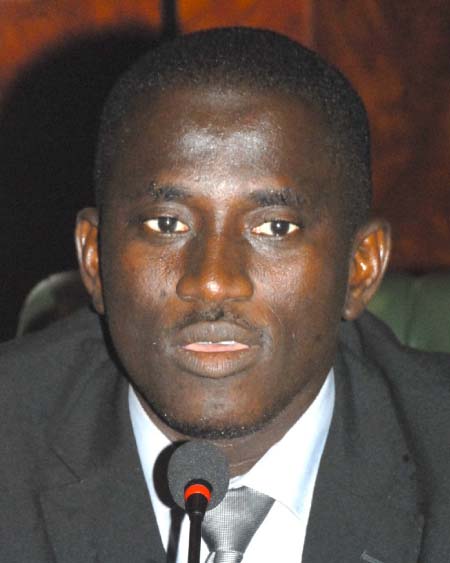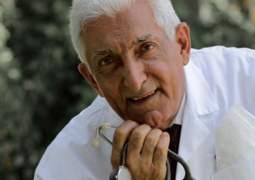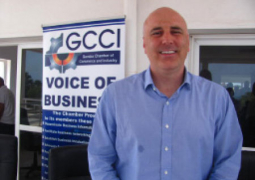
Ndoye was continuing his testimony before Justice Amadi of the Special Criminal Court in Banjul, in the trial of the former Secretary General and Minister for Presidential Affairs, Momodou Sabally.
When the case was called, DPP S.H. Barkun applied for the witness to speak in Wolof, since they found it difficult to comprehend what he was saying in English at the last hearing.
In response, senior defence Counsel Gaye said he was surprised by the DPP’s application because it was for the witness to say to the court the language he was au fait with, because he was asked which language he was going to speak and he said English.
However, Justice Amadi said senior counsel Gaye was representing the accused, and the accused could talk through him, in the same way the witness could also talk through the DPP.
Continuing his testimony, Ndoye said the document he prepared was for the attestation for the sale of the vehicles.
Whenever he did a transaction it was always supported by documents indicating that the vehicles were received from him.
“What was the agreed price of the vehicles?” DPP asked
“I am objecting to that question on the grounds that there is no evidence before the court that a price has been agreed for the vehicles,” said senior counsel Gaye.
However, the DPP said the question asked was not leading or suggesting an answer.
Justice Amadi said there was no evidence of a price before the court, so if DPP asked the question on the price then that question was leading.
Further testifying, Ndoye said the accused asked him how much was he asking for the vehicles, and he (Ndoye) said he was selling the vehicles for CFA 60 million each.
The accused said the price was expensive and offered 50 million CFA for each, and he (Ndoye) said he was finally going to sell for 55 million CFA each.
When he (Ndoye) gave the paper work to the accused, the accused said he had a lot of papers with him at the moment and was going to see the President, and asked him (Ndoye) to give the documents to PW1, Sheikh.
He (Ndoye) was the one who prepared the documents for the sale of the vehicles between him and the accused, because the accused said the vehicles would be accepted.
Asked by the DPP to explain what he meant by the agreement between him and the accused, the witness said the accused was at the time the Secretary General and Minister for Presidential Affairs, and since he (Ndoye) could not see the President directly he (Ndoye) has to go through the accused.
The DPP then applied to tender the vehicles sale documents in court as evidence.
However, senior counsel Gaye objected on the grounds that they were seeing the document for the first time.
The DPP, in his reply, said reference had been made to the documents by PW1, who was cross-examined on the said documents.
Also in their list of additional documents they filed on 4 June, they made mention of the vehicle documents, he added.
Senior counsel Gaye denied cross-examining PW1 on the said documents, adding that he had never seen the documents before.
DPP said that one of the vehicle keys was with the accused, and the other keys were with the witness and the accused was the only one that knew where the vehicles were.
Justice Amadi then asked Ndoye if he had bought the vehicles from America and, if yes, where was the receipt of purchase.
Ndoye said he bought the vehicles in America but “if you buy a vehicle from America to Senegal before you get it on the road you would have to clear it first and in order to do that you would present the purchase documents”.
However, Justice Amadi said the grounds on which senior counsel Gaye based his objection, and if that was the only grounds on which he should let the DPP admit the document, then he could request for the document.
The witness further adduced that he did not give the accused the documents because the transaction was incomplete.
DPP then applied to tender the documents, but senior counsel Gaye raised an objection on the grounds that the documents were not written in the court’s language, which is in English, but in French, and referred the court to section 46 of the Court’s Act.
The DPP said the counsel’s objection had no merit and the Court’s Act does not exclude admitting documents written in foreign languages.
He also said documents could be admitted in foreign languages and then submitted for interpretation after the submission.
Senior counsel Gaye said it was the duty of the person seeking to tender the document to interpret it into the court’s language, and tender the interpretation in court with the original documents. He therefore urged the court to reject the documents.
The documents subsequently were tendered in court, and the weight to be attached to it would be determined by the interpretation, the court ruled.
The case continues on 10 June 2015.




